
Reducing Investigations in Suspected Early onset Sepsis (RISE)- Quality Improvement Project
2Neonatal Unit, The James Cook University Hospital, South Tees Hospitals NHS Foundation Trust, UK
Background: Full blood count (FBC) is used commonly in evaluation of early onset sepsis (EOS). In this project we evaluated validity of FBC as screening tool in EOS.
Methodology: Retrospective review of babies (≥ 34 weeks GA) born at North Tees University hospital and started on antibiotics for suspected EOS in six months duration (January 2018 - June 2018). “Presumed sepsis” [True Positives] was defined as clinically ill (Respiratory/Haemodynamic instability requiring support or encephalopathy or any persistent physiological abnormality) on examination or any culture positive.
Results: Total 169 babies were started on antibiotics in the six months duration for suspected EOS. White cell count (WCC) of 20 /μl, absolute neutrophill count (ANC) of <5/μland C-reactive protein (CRP) value of >10mg/l showed poor sensitivity (26.87%, 10.45% and 29.85% respectively) and negative predictive value (56.64%, 61.54% and 63.28% respectively) for evaluation of sepsis. The area under Reciever Operating Characterstics (ROC) curve for WCC, ANC and CRP were 0.59 (p=0.05), 0.58 (p=0.074) and 0.58 (p=0.076) respectively and considered as ‘poor test’. There was no difference in mean WCC and ANC in babies with ‘presumed sepsis’ versus babies with ‘no sepsis’. Significant difference in CRP levels was found in babies with ‘presumed sepsis’ versus babies with ‘no sepsis’ (21 ±49 vs. 7.7 ±12, p=0.032).Correlation of duration of antibiotics with CRP levels (rs-68%, p=0.00) was strong, while it was poor with WCC (rs-12.8%, p=0.10) and ANC (rs-11%, p=0.16). Abnormal clinical examination had a poor correlation with antibiotics duration >48hours (kappa 0.20).
Conclusion: In well babies with suspected EOS, FBC is not a useful screening test. The decision to prolong duration of antibiotics was predominantly based on CRP.
Recommendations: Abandoning practice of doing FBC in well babies with suspected EOS and performing FBC only in admitted babies to evaluate severity of sepsis.
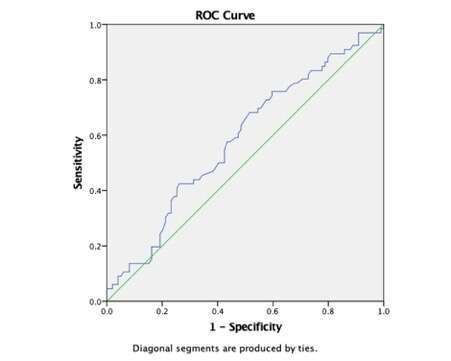
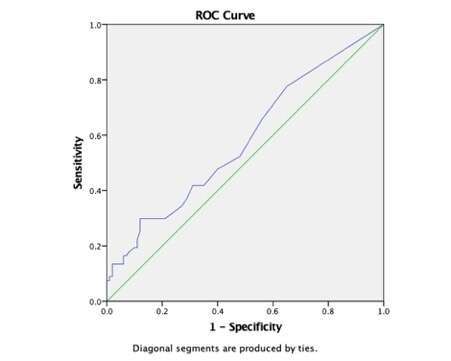

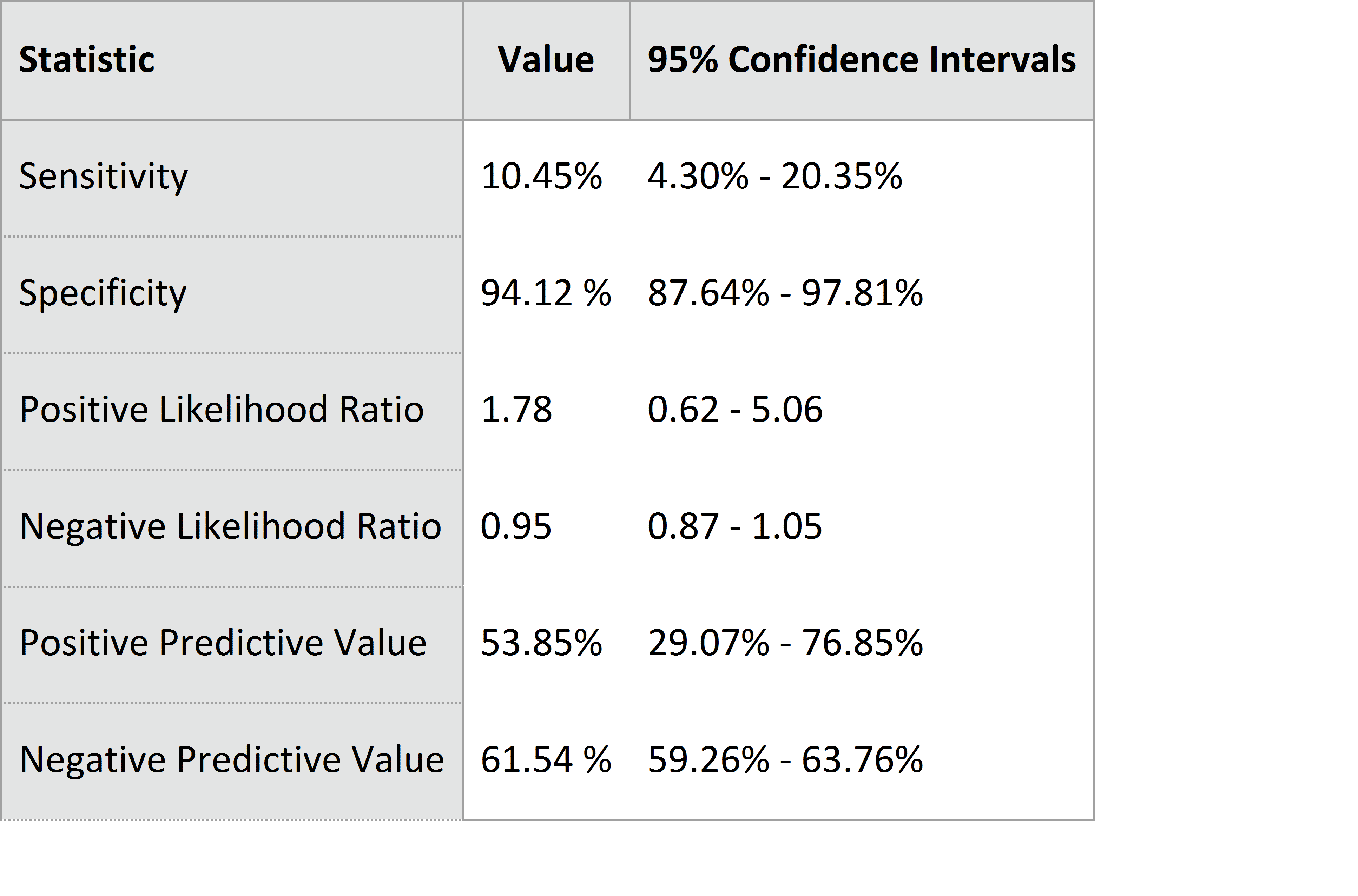
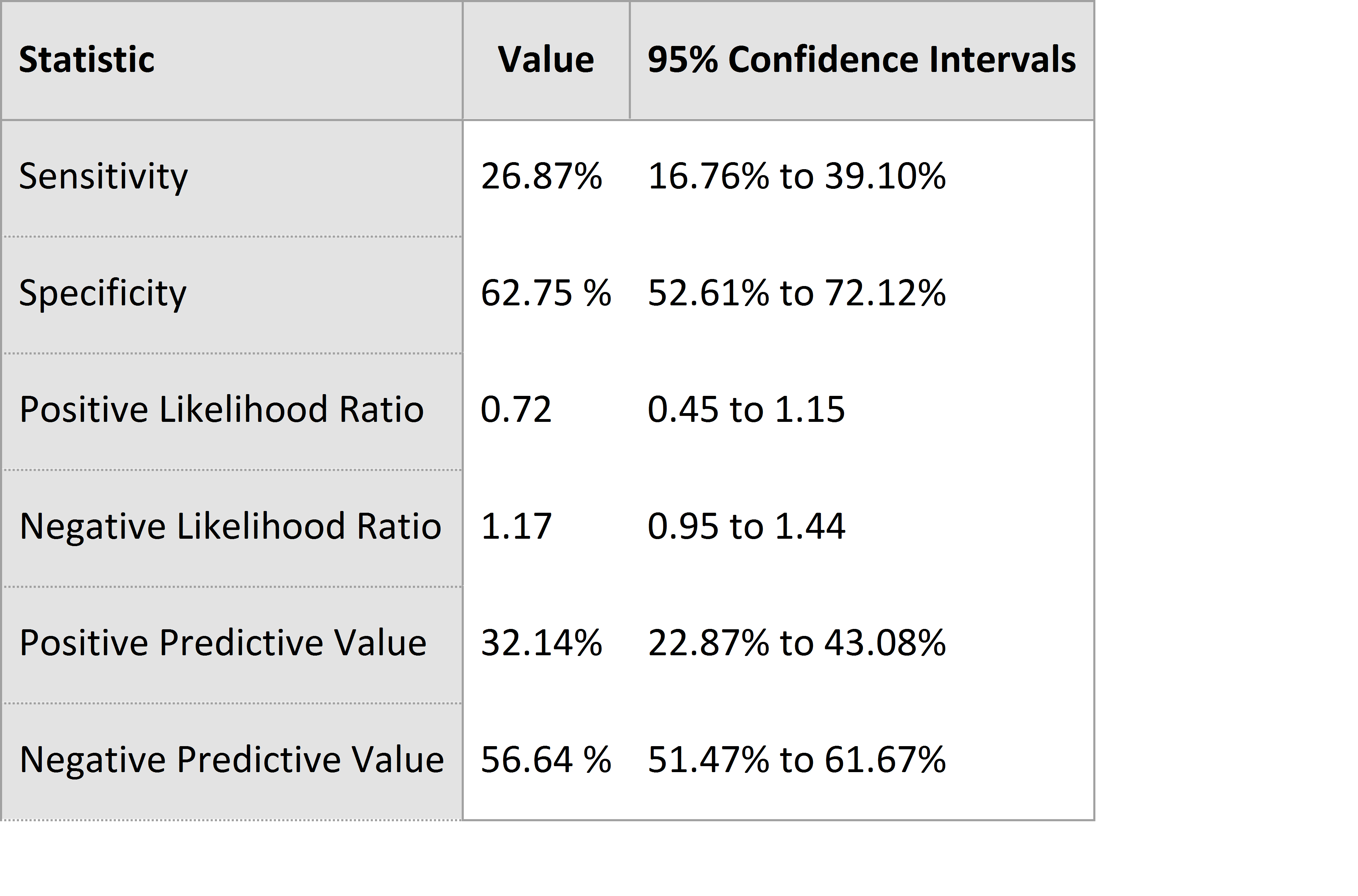
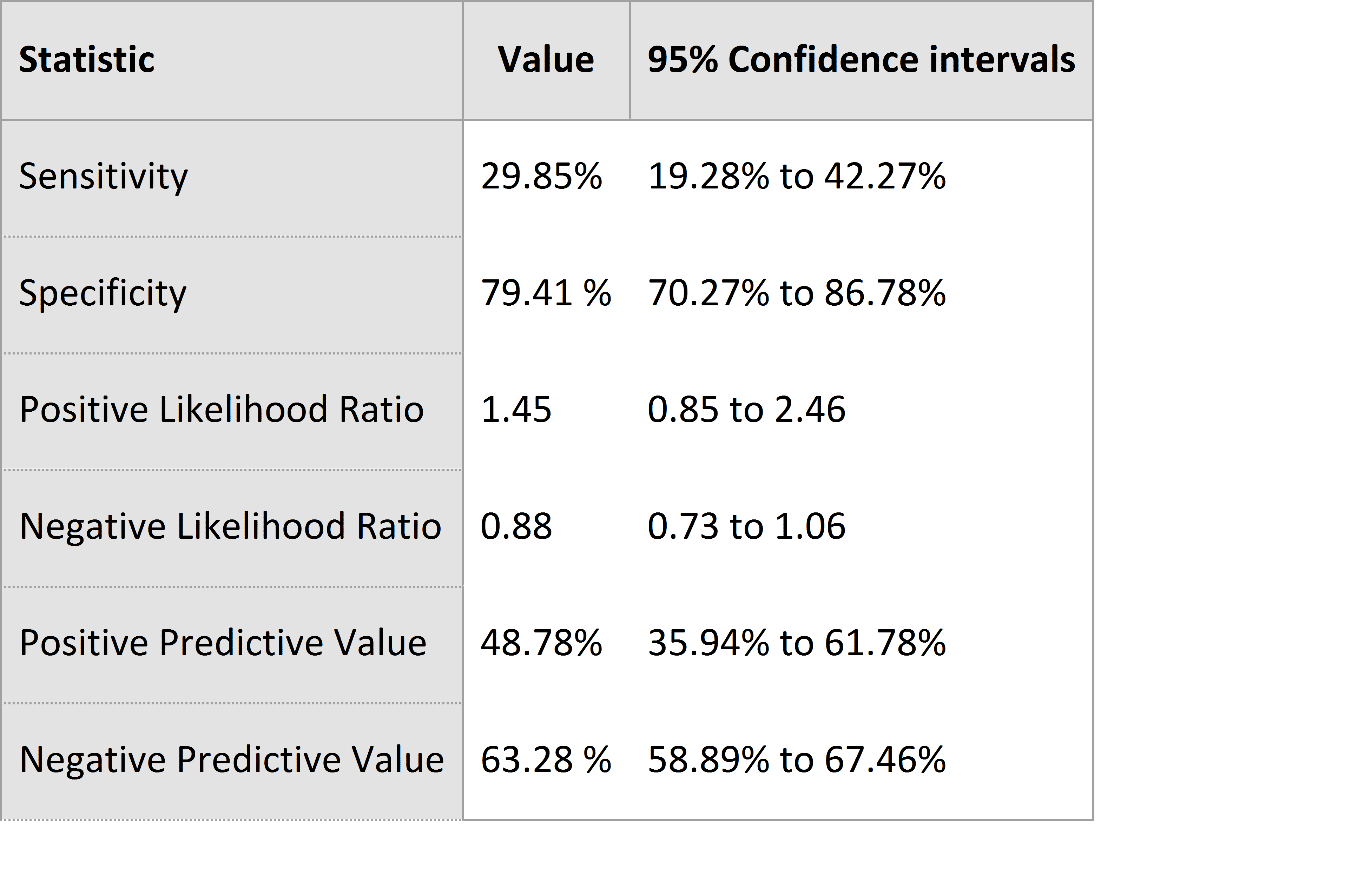
Powered by Eventact EMS